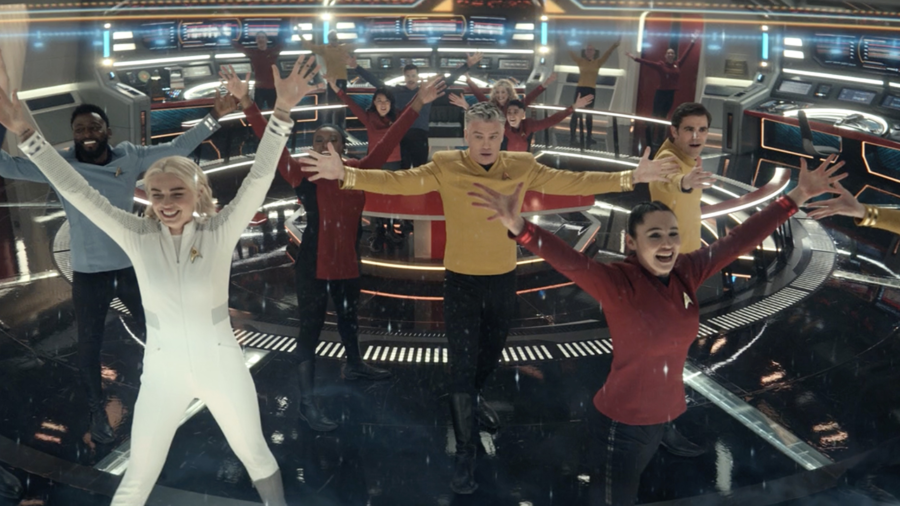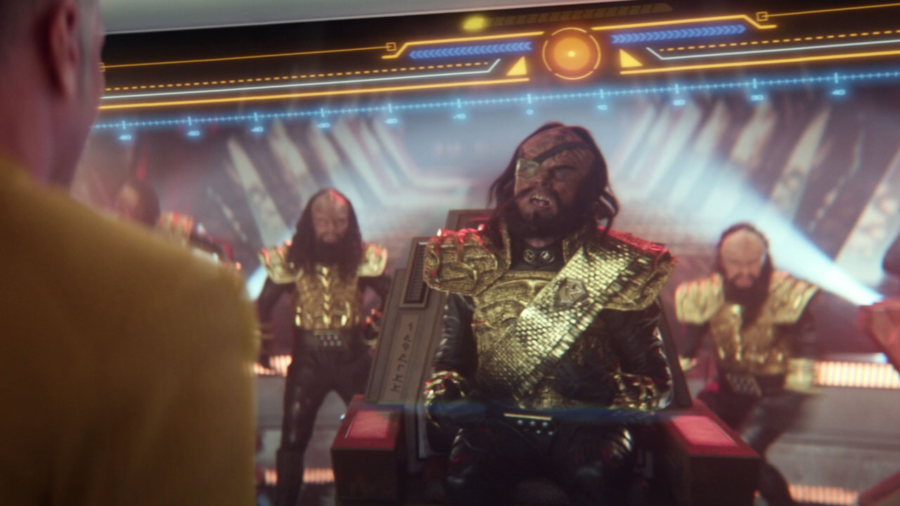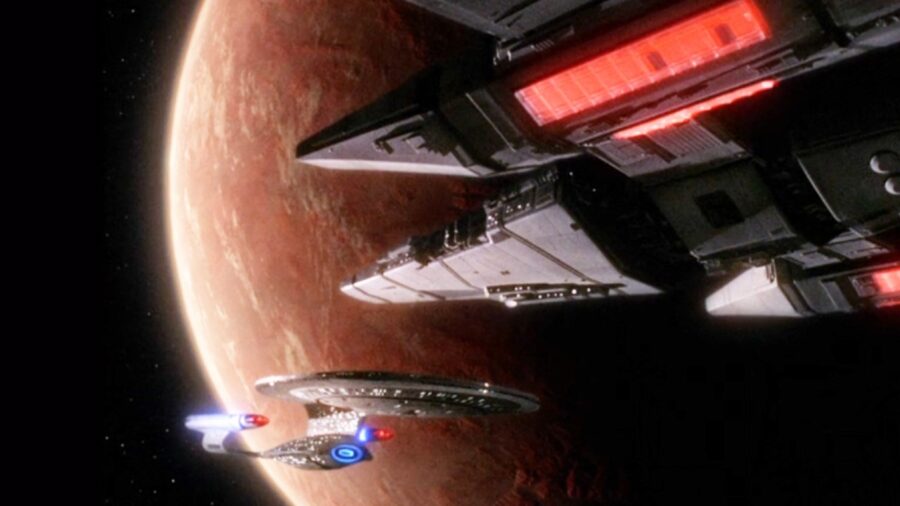
By Chris Snellgrove
| Published
For the most part, audience reception to Star Trek: Strange New Worlds has been quite positive thanks to the talented cast, solid writing, and insanely high production value. However, for many Star Trek fans, this show has had one misstep: the musical episode “Subspace Rhapsody.”
Admittedly, this episode pales in comparison to more successful musical episodes like Buffy the Vampire Slayer’s “Once More With Feeling” and the songs could be a little (okay, a lot) catchier. Still, I believe fans should nonetheless respect this controversial episode because it proves that the writers of sci-fi’s best franchise are still willing to take creative risks.

As longtime Star Trek fans know, the franchise hasn’t always exhibited the creativity that went into the musical episode of Strange New Worlds. For example, early episodes of The Next Generation recycled scripts written for a canceled Original Series sequel show which would have introduced new characters like Decker and Ilia. Those characters were later recycled for Star Trek: The Motion Picture and later inspired the characters of Riker and Troi in TNG.
The franchise has had some other derivative moments, of course. Deep Space Nine (a personal favorite) has long been accused of ripping off Babylon 5, and Star Trek: Nemesis is a lame retread of The Wrath of Khan. Speaking of Wrath of Khan, its nebula battle sequence was taken and recycled for episodes of The Next Generation and even Picard.

Star Trek has a long history of being derivative. Strange New Worlds’ musical episode is a refreshing reminder that the franchise is still capable of surprising us.
That didn’t keep many fans from wringing their hands about everything from the plot to its lyrical execution. Like a true geek chorus, most of these annoyed fans joined their voices to make a singular pronouncement: “Star Trek shouldn’t have a musical episode.” These fans have a very fixed idea of what the franchise should and shouldn’t do, and like a poorly-trained targ, they are always waiting to pounce on any episode or film that deviates from what they imagine Star Trek should be doing.

However, this is the kind of myopic view that does more than hold the franchise back. If such fans had their way, the franchise would have died decades ago.
The Next Generation is considered the best Star Trek show by many older fans, but not only was this series very different from The Original Series, it didn’t reach true greatness until it was free of the influence of franchise creator Gene Roddenberry.
In turn, Deep Space Nine became the true greatest Trek show ever made by explicitly ignoring the storytelling restrictions of previous shows. Those including Roddenberry’s ban on creating conflict between characters.
Even though I can’t hum a single tune or remember a single lyric, I admire Star Trek’s first musical episode because it proudly ignores all the rules. Historically, Star Trek has been held back by fans who want nothing more than to slingshot around the sun and return the franchise to some imagined golden age (like the ‘90s).
Star Trek would never have survived if the writers hadn’t been willing to take risks, and Strange New Worlds’ writers have realized a powerful truth: Star Trek can be anything. I should never again be held back by cranky fans who are unwilling to put down their TNG DVD sets and admire a franchise that has finally remembered the wisdom of James T. Kirk: “Risk is our business.” Strange New Worlds is ready to lead us into a better, brighter, and bolder future, one episode (and, yes, one song) at a time.

Leave a Reply